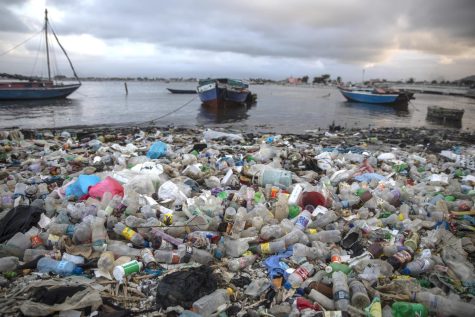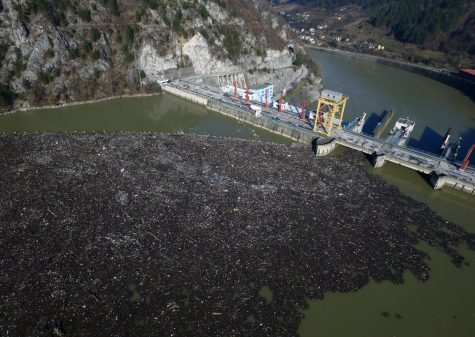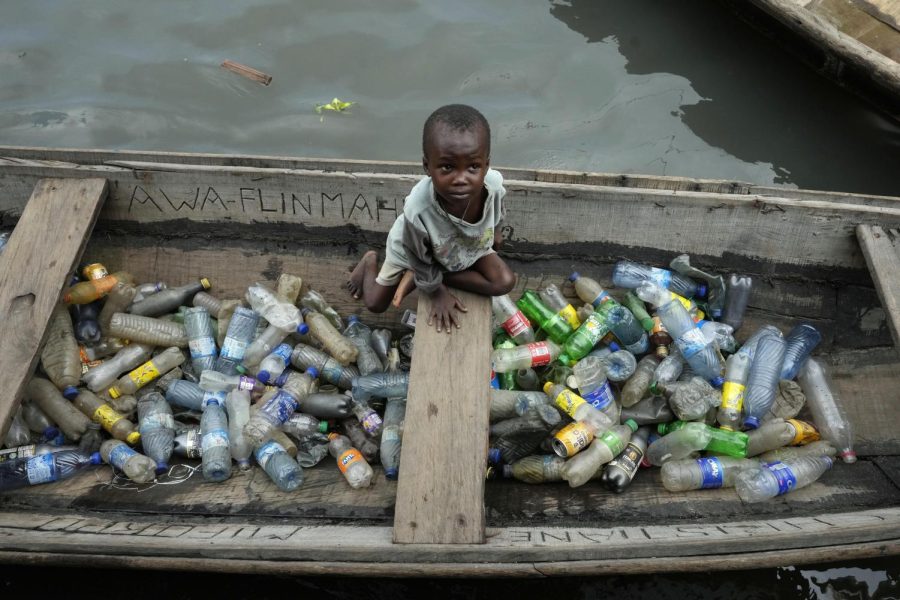UN drafts treaty to end global plastic pollution (Gallery)
Negotiators from around the world gathered at UNESCO to establish a global environmental protection treaty
May 29, 2023
PARIS — Charged with developing the first international, legally binding treaty on plastic pollution, including in the marine environment, the Intergovernmental Negotiating Committee for Plastics met in Paris on Monday. There is little agreement yet on what the outcome should be and this is the second of five meetings due to take place to complete the negotiations by the end of 2024.
At the first meeting, held six months ago in Uruguay, some countries pressed for global mandates, some for national solutions and others for both.
Because it’s a short timeline for treaty negotiations, experts say that in this second session it’s critical that decisions are made about the objectives and scope of the text — such as what kind of plastics it will focus on. But that is easier said than done. Over 2,000 participants, including governments and observers, from nearly 200 countries have descended on the meeting hosted at the Paris-based U.N. cultural agency, UNESCO.
One fundamental issue considered Monday was the system of voting on decisions for each nation, which has already produced lively debate and delays in the sessions that are due to end Friday.

Humanity produces more than 430 million tons of plastic annually, two-thirds of which are short-lived products that soon become waste, polluting the ocean and, often, working their way into the human food chain, the United Nations Environment Program said in April. Plastic waste produced globally is set to almost triple by 2060, with about half ending up in landfill and under a fifth recycled, according to the Organization for Economic Cooperation and Development.
The treaty could focus on human health and the environment, as desired by the self-named “high ambition coalition” of countries, led by Norway and Rwanda, with limits on plastic production and restrictions on some of the chemicals used in plastics. The coalition is committed to an international, legally binding instrument to end plastic pollution by 2040. It says that this is necessary to protect human health and the environment while helping to restore biodiversity and curb climate change.
Alternatively, the treaty could have a more limited scope to address plastic waste and scale up recycling, as some of the plastic-producing and oil and gas exporters want. Most plastic is made from fossil fuels. Countries supporting this plan include the United States, Saudi Arabia and China. The U.S. delegation in Uruguay said national plans would allow governments to prioritize the most important sources and types of plastic pollution. Many plastics and chemical companies want this approach, too, with a plastic waste treaty that prioritizes recycling.

The International Council of Chemical Associations, the World Plastics Council, the American Chemistry Council and other companies that make, use and recycle plastics say they want an agreement that eliminates plastic pollution while “retaining the societal benefits of plastics.” They’re calling themselves the “global partners for plastics circularity.” They say modern plastic materials are used around the world to create essential and often life-saving products, many of which are critical to a lower-carbon, more sustainable future.
Joshua Baca, vice president of plastics at the American Chemistry Council, said countries are so different “a one-size fits all approach won’t be effective, equitable, or implementable. Instead, the agreement should require national action plans as that will most effectively eliminate plastic pollution specific to a country’s situation.”
The International Pollutants Elimination Network, or IPEN, wants a treaty that restricts the use of toxic and environmentally hazardous chemicals in the production of plastic.
“To focus on plastic waste in this treaty would be a failure because you have to look at plastic production to solve the crisis — including the extraction of fossil fuels and the toxic chemical additives,” said Dr. Tadesse Amera, the network’s co-chair.
IPEN’s international coordinator, Björn Beeler, said countries need to make a plan by the end of this week to write up an initial draft of the treaty text so it can be negotiated at the third meeting.
“If there’s no text to negotiate, you’re just continuing to share ideas,” he said. “Then because of the timeline, we could be looking at an early failure.”
___
McDermott reported from Providence, Rhode Island.
___
Associated Press climate and environmental coverage receives support from several private foundations. See more about AP’s climate initiative here. The AP is solely responsible for all content.

